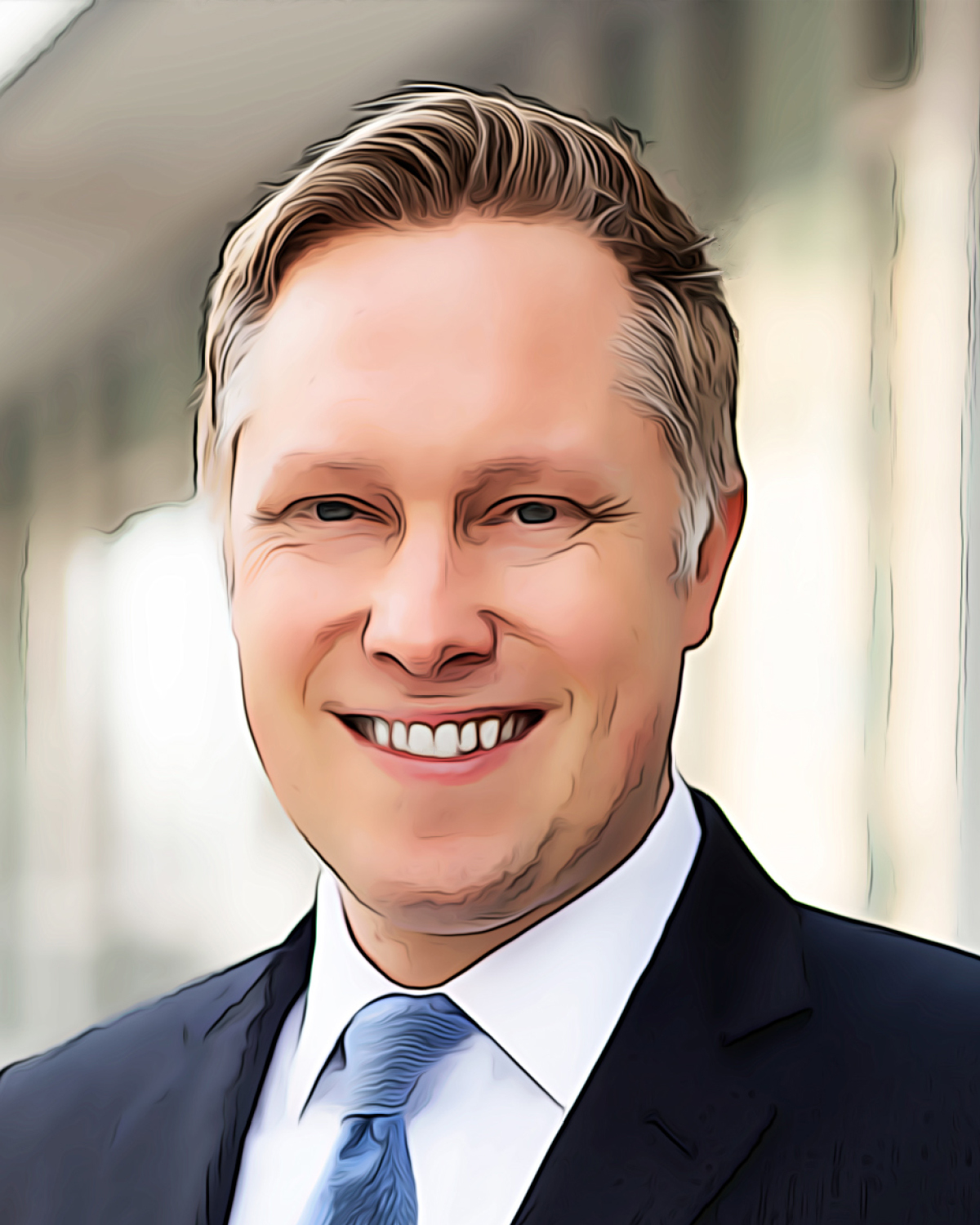The Disciplined Investor
The Power of Purpose in Retirement

If you’re lucky, summer was a chance to unwind, catch up on beach reads and spend quality time with family and friends before the familiar rhythm of fall resumed. But what happens when there’s no routine to return to? For many, that’s the dream of retirement: endless relaxation, free from the constraints of work. But the reality can be more complicated.
Retirement is a major life shift, one that impacts more than just your schedule. It can reshape your sense of identity, daily habits and even your health. In fact, research has shown that retirement can raise the risk of heart disease and other medical issues by up to 40%.1 The reason? Experts point to a loss of purpose and reduced social connection, both of which can take a toll on mental and physical well-being.
Without a plan for how to spend your time meaningfully, the transition can bring unexpected emotional challenges.
The Risks of Unstructured Retirement
Many retirees begin this new chapter with a “honeymoon phase”—a period marked by the novelty of free time, relaxation or long-awaited travel plans. But this initial high can eventually fade.
When the excitement of sleeping in and checking items off the bucket list wears off, retirees can find themselves facing unexpected emotional challenges. Common struggles include boredom, loss of routine, identity shifts and social isolation. In fact, 24% of older adults are considered to be socially isolated.2 Isolation can also have a ripple effect on health: It’s associated with a 50% increase in risk of developing dementia and increased risk of premature mortality.
The Retirement Identity Shift
In many ways, it’s hard to define what retirement is. After all, it’s not a single moment but a series of transitions. For instance, rather than an abrupt shift to not working at all, you may consider bridge employment—usually part-time work in a temporary position or as a consultant in your field or in a different industry. This can offer a gradual shift into retirement, providing continued income and engagement as you adjust.
Staying Connected and Active
Relationships and physical routines matter more than ever when you retire. Staying active, both physically and socially, offers measurable health benefits. Regular physical activity lowers risks, including the likelihood of dementia, heart disease, stroke and eight types of cancer.3
People-centered activity is important, too. Look for ways to stay engaged, whether through volunteering, mentoring, part-time work, creative pursuits or community involvement. Older volunteers, aged 55 and up, who gave 100 hours or more each year were two-thirds less likely to report poor health than non-volunteers.4
Spending more time with family is a high priority for many retirees and can be a great way to fulfill social needs. But make sure that vision is shared. Open conversations with loved ones about time together, expectations and boundaries can help align plans and avoid disappointment down the road.
Designing a Retirement with Purpose
To avoid some of the potential pitfalls of an unstructured retirement, it’s important to think carefully and proactively about purpose. What do you want this next phase of life to look and feel like? Beyond financial planning, consider how you’ll meet the deeper needs your pre-retirement life—including work and raising kids—may have fulfilled: structure, identity, accomplishment, social connection and a sense of meaning.
What brings you pleasure and meaning? What have you always wanted to try or learn? Pursuing these activities can provide purpose and help ensure retirement’s not just a long vacation, but a rewarding chapter of your life.
Feeling stuck here? Try asking close friends or family what they see light you up. Often, others can reflect back passions or strengths that are hard to see on your own.
Don't Just Retire—Refire!
Another term for this period of searching for and finding meaning and purpose is “ReFirement.”5 Purpose fuels motivation, sharpens focus, and gives each day structure—something that many new retirees find themselves missing after leaving full-time work.
ReFirement combines the freedom of retirement with renewed intention and passion. In other words—get fired up! Take advantage of this stage of life to rediscover what truly matters to you, whether that means learning something new, volunteering in your community, or exploring interests that may have taken a back seat during your working years.
In this paradigm, rather than viewing retirement as an ending or time of slowing down, ReFirement reframes this period as an opportunity for growth, connection, and fulfillment. Consider pursuing long-held creative interests such as painting, writing, traveling, or learning an instrument. Maybe your interests are more people-focused and volunteering or mentoring are for you. Maybe it is time to take classes, start a business or even a second career now that you have more free time. Finding the path that is right for you can help increase your sense of purpose.
Here are some tips:
- Reflect on what gives you meaning. Take time to ask: What brings me joy, purpose, or peace? Discuss these topics with friends or keep a journal.
- Revisit old passions—or try something new. Many people have interests that were set aside during busy career years. Take time to develop that old hobby or pursue a new interest.
- Stay connected with others. Social connection can bring a feeling of belonging and connection. Join a book club, hiking club, or volunteer for causes you find meaningful.
- Keep learning to sharpen the mind. Take a class at a local community center or college.
As your vision for retirement evolves, keep your financial advisor in the loop. Your financial advisor can help you align your financial strategy with your goals. Financial readiness is an essential part of retirement, but so is life readiness. As life expectancy increases, knowing how you’ll spend your time, contribute your talents, and stay connected to others can make all the difference in how fulfilling your retirement years feel. A comprehensive retirement plan should support your lifestyle and your life goals.
References
1. Protect Against a Retirement Risk. Johns Hopkins Medicine. https://www.hopkinsmedicine.org/health/wellness-and-prevention/protect-against-a-retirement-risk
2. Social Isolation and Loneliness in Older Adults: Opportunities for the Health Care System. National Library of Medicine. https://www.ncbi.nlm.nih.gov/books/NBK557972/
3. Physical Activity Benefits for Adults 65 or Older. (November 7, 2024). U.S. Centers for Disease Control and Prevention. https://www.cdc.gov/physical-activity-basics/health-benefits/older-adults.html
4. Protect Against a Retirement Risk. Johns Hopkins Medicine. https://www.hopkinsmedicine.org/health/wellness-and-prevention/protect-against-a-retirement-risk
5. Van Deusen, A. “ReFire” Instead of ‘Just’ Retire: A Framework to Help Clients Plan for Purpose in Retirement. Nerd’s Eye View. https://www.kitces.com/blog/refirement-reimagining-retirement-with-purpose-passion-planning-change-beginning-financial-advisor/

Hello! I’m Saul, a wealth advisor and financial planning specialist at Allodium Investment Consultants, located in Minneapolis, MN. I am dedicated to helping our clients reach their financial goals by specializing in investment strategies and comprehensive financial planning. When I am not advising clients, you will find me spending time with my wife, Khara, and daughter, Brielle. We live on a hobby farm, which supports my love of gardening and cooking. I have also been a downhill ski racing coach and enjoy outdoor activities, including canoeing, camping and photography.
The information provided is for educational purposes only and is not intended to be, and should not be construed as, investment, legal or tax advice. Allodium makes no warranties with regard to the information or results obtained by its use and disclaim any liability arising out of your use of or reliance on the information. It should not be construed as an offer, solicitation or recommendation to make an investment. The information is subject to change and, although based upon information that Allodium considers reliable, is not guaranteed as to accuracy or completeness. Past performance is not a guarantee or a predictor of future results of either the indices or any particular investment.